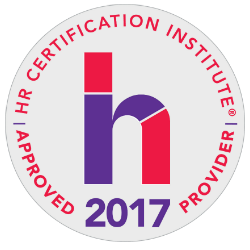|
17October |
EVENT DATEWednesday, Oct 17, 2018 |

|
PRESENTER(s)SkillEducators |

|
Any TimeDuration : 90 Minutes |
|
This program has been approved for 1.5 PDCs |
“The use of this seal confirms that this activity has met |
Event Material
Training Description
"Let's face it: most HR professionals are dealing with a lot of employee complaints, almost every day."
Here is just a quick snapshot of the complaints that come to HR:
- "He's harassing me..."
- "I'm working in a hostile work environment..."
- "She's a bully..."
- "I'm not one of my boss's 'favorites', so I didn't get..."
- "I didn't get the promotion because I'm..."
- "He's just retaliating against me..."
- And on and on it goes! Today, HR has become the place where everyone wants to complain--and they do--frequently. Well, that's a problem on so many levels...however, the biggest problem is that most HR professionals have not had the proper training in how to handle complaint intake and conduct investigations. So, when an employee stomps into HR to complain--what are you supposed to do?
- "That write-up I got was so not fair...the only reason I got written up was because..."
Well, the "fly by the seat of one's pants" approach of just grabbing a notepad and then calling in one witness after the other--is most definitely not the best option... Without having the knowledge of how to handle complaints and conduct investigations, the employer is at much greater risk for violating federal, state, and in some instances even local laws. The way to minimize those risks, and the costs associated with mishandling an employee's allegations, is in having a basic understanding of what an investigation is--and how to conduct one.
Learning Objectives:
- Identify the most common types of internal investigations
- Learn how to ask questions and determine the "level of significance" in employee complaints to identify if an investigation is necessary
- Learn how to obtain and document a statement of complaint
- Understand the legal obligations that require employers to conduct internal investigations
- Learn why documentary and physical evidence is critical
- Learn some very basic principles in preparing for witness interviews
- Learn how to establish a chain of custody and a confidential retention process
- How to analyze physical, documentary, and testimonial evidence to identify policies and/or laws that have been violated
- Learn a simple format for documenting investigative findings
- Learn best practices in handling disciplinary action and terminations to avoid stepping on legal land mines
Who Should Attend:
- Senior HR Professionals
- HR Managers & Directors
- Attorneys
- HR Personnel
- Employee Relations Professionals
| Training Format |
Industry |












